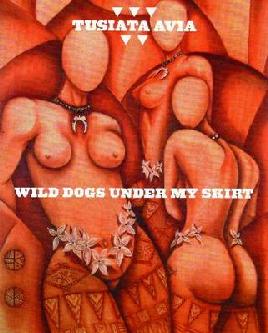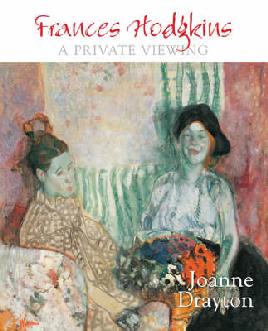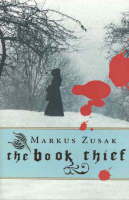 The Press Christchurch Writers' Festival 2006
The Press Christchurch Writers' Festival 2006
Christchurch readers were lucky to see a wealth of great New Zealand writers over the 10th, 11th and 12th of September at The Press Christchurch Writers’ Festival 2006. While it’s always nice to see a few big overseas names the real standouts of this festival were the New Zealanders, and lots of those attending commented that it was good to see the locals being given equal prominence.
Familiar festival favourites like Witi Ihimaera, Jenny Pattrick and Patricia Grace were on stage, but new voices like Rachael King, Paul Cleave, Ben Brown, Anna Smith and Isabel Waiti-Mulholland were also heard.
 One of the most enjoyable features of the festival was the opportunity to hear poets reading their work. Diane Brown and Tusiata Avia starred in the Saturday Poetry for Lunch session, Brown with her dead-on observations of life and love in prose and poetry, Avia with her amazing presence and wonderful reading style performance as much as reading. If you ever get the chance to see Avia perform Wild Dogs Under My Skirt, which she did in Christchurch a couple of festivals ago and is rumoured to be doing in Auckland next year, grab it with both hands. Reading it is great but seeing it is even better.
One of the most enjoyable features of the festival was the opportunity to hear poets reading their work. Diane Brown and Tusiata Avia starred in the Saturday Poetry for Lunch session, Brown with her dead-on observations of life and love in prose and poetry, Avia with her amazing presence and wonderful reading style performance as much as reading. If you ever get the chance to see Avia perform Wild Dogs Under My Skirt, which she did in Christchurch a couple of festivals ago and is rumoured to be doing in Auckland next year, grab it with both hands. Reading it is great but seeing it is even better.
Bill Manhire towered above the Sunday Poetry for Lunch with his gentle but commanding delivery and the sheer quality of his poetry. Manhire read a piece he had been commissioned to write for Sir Edmund Hillary to read at the 25th anniversary of the Erebus disaster. Sir Ed, profiled in The Press before going to Antarctica for the ceremony, was quoted as saying he was going to read a piece of poetry by Bill Manhire that “I quite like actually” praise enough, according to Manhire.
Members of the Christchurch School for Young Writers were part of the poetry panels and it was nice to hear some very fresh poetic voices and to see them being treated with serious consideration by the more established poets.
Christchurch poet Bernadette Hall was a festival participant both as a poet and as a literary executor and editor. Her session with sculptor Llew Summers talking about the very beautiful book The Way of the Cross, that matches photographs of Summers’ Stations of the Cross sculptures in the Cathedral of the Blessed Sacrament with Hall’s wonderful poems, gave new insights into what was a classic Christchurch artistic controversy
 Hall was also part of a very interesting panel looking at readers’ fascination with ‘artistic lives’ As the literary executor of her dear friend Joanna Margaret Paul Hall edited Like love poems, selecting and editing Paul’s poems after her death. Joanne Drayton has written biographies of neglected New Zealand artists Rhona Haszard and Edith Collier but here was talking about her biography of Frances Hodgkins, A private viewing, which gave its name to the session. Peter Whiteford spoke about his experiences selecting the letters of poet Ursula Bethell. Is it true that all we need to know about an artist’s life is in the work? These writers thought not, that knowing about the life illuminated the work, but were adamant that it was a fine balance had to be struck between showing too much and keeping too much back.
Hall was also part of a very interesting panel looking at readers’ fascination with ‘artistic lives’ As the literary executor of her dear friend Joanna Margaret Paul Hall edited Like love poems, selecting and editing Paul’s poems after her death. Joanne Drayton has written biographies of neglected New Zealand artists Rhona Haszard and Edith Collier but here was talking about her biography of Frances Hodgkins, A private viewing, which gave its name to the session. Peter Whiteford spoke about his experiences selecting the letters of poet Ursula Bethell. Is it true that all we need to know about an artist’s life is in the work? These writers thought not, that knowing about the life illuminated the work, but were adamant that it was a fine balance had to be struck between showing too much and keeping too much back.
Knowing what to reveal and what to keep hidden also came up in the Political Truths and Other Lies sessions, as political journalists Jane Clifton, Finlay Macdonald and Colin Espiner discussed how to get at the truth and how to share it with their readers as well as the reactions of the politicians to their efforts. The consensus seemed to be that political journalists know quite a bit more than they tell, especially about politician’s private lives, but if a politician had campaigned on family values and then was seen to be not upholding them all bets were off. At this point it was pointed out that it was fairly unlikely that any politician would come out in favour of adultery in a campaign, but hope was held that it might happen someday.
Christchurch composer Philip Norman used sound and vision to complement his very entertaining session on Douglas Lilburn with recordings of Lilburn’s music and visuals featuring clips of him speaking about his work. Norman’s biography is a model of the genre, combining erudition, an easy style and high production values to create a handsome book that is both scholarly and readable. The illustrations are an outstanding feature of the book, as Lilburn was friends with many artists, and Norman used them to good effect in his session as well, finishing with a short slide show. One of the slides showed Lilburn’s very modest room on the site of the Town Hall, commemorated by a plaque a few feet away from where we were sitting.
 Many Christchurch readers will have been involved in one way or another in celebrating Margaret Mahy’s 70th birthday, as have readers around the rest of the country. Kate de Goldi, who chaired the session featuring Mahy in conversation with Markus Zusak, had been in conversation with Mahy four times this year at her count, but with her characteristic thorough preparation and thoughtful questions she managed to make it fresh. The two writers of books for Young Adults shared a few of their own favourites (Mahy H. Rider Haggard, although his shooting of elephants renders him heinous today, Zusak S.E Hinton, who inspired him to be a writer) and a few ideas on what Young Adult actually means when it comes to books. Librarians were credited with inventing the genre to make it easier to shelve things, which may be useful in one way but can have the disadvantage of keeping fine writers like De Goldi, Mahy and Zusak hidden in the YA area, when anyone who values good writing should read them.
Many Christchurch readers will have been involved in one way or another in celebrating Margaret Mahy’s 70th birthday, as have readers around the rest of the country. Kate de Goldi, who chaired the session featuring Mahy in conversation with Markus Zusak, had been in conversation with Mahy four times this year at her count, but with her characteristic thorough preparation and thoughtful questions she managed to make it fresh. The two writers of books for Young Adults shared a few of their own favourites (Mahy H. Rider Haggard, although his shooting of elephants renders him heinous today, Zusak S.E Hinton, who inspired him to be a writer) and a few ideas on what Young Adult actually means when it comes to books. Librarians were credited with inventing the genre to make it easier to shelve things, which may be useful in one way but can have the disadvantage of keeping fine writers like De Goldi, Mahy and Zusak hidden in the YA area, when anyone who values good writing should read them.
The personal highlight of the festival? Not strictly a writer at all, although possessed of a turn of phrase that any writer would be proud of. Don McGlashan and the band Seven Sisters played an outstanding set at the Saturday night session Home from Abroad, bracketing some very funny musings on what it means to be a New Zealander writer by Andrew Fagan, Karen Hay, Paula Morris, Emily Perkins and McGlashan himself.

